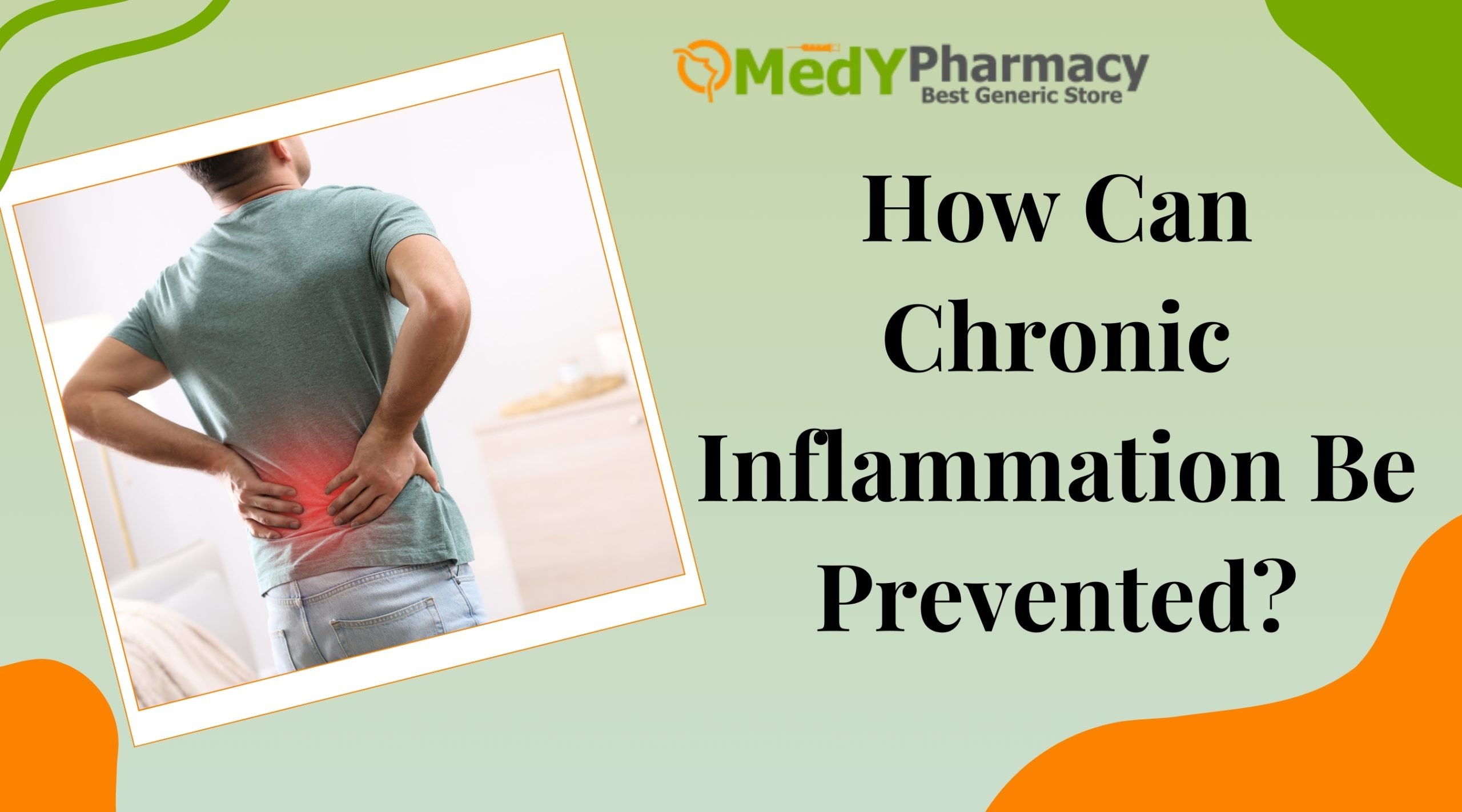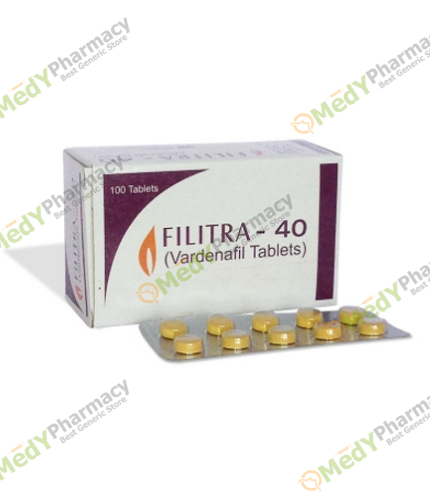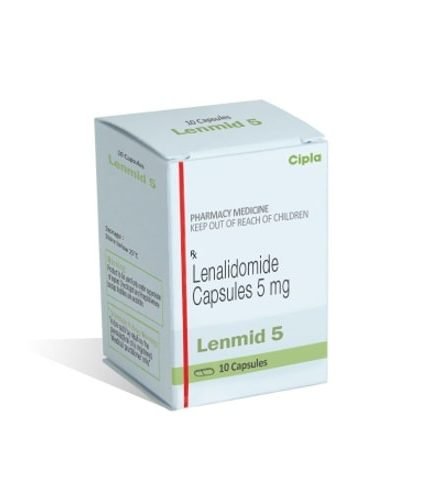Introduction:
A significant chronic inflammation in your body is frequently one of the indicators that you have a problem. Inflammation or swelling of the tissues can happen to the interior tissues and the skin’s surface.
The difficulty is that although persistent inflammation is obvious, it could not be a sign of a particular illness. Indeed, the main problem with this symptom is that it might be a sign of various illnesses.
Anything from a little fever to a cut, wound, burn, or even more serious conditions like arthritis can result in significant swelling.
The causes of chronic inflammation will be discussed in this article. We’ll examine the many situations in which this indicator may appear. Frequently, you may observe additional symptoms only at the beginning of such an upsurge.
The signs and symptoms of persistent inflammation will be covered. After that, we’ll eventually provide the solutions to provide some respite.
In addition to increased blood flow to the injured region, this reaction involves the production of proteins and antibodies. In cases of acute inflammation, such as a cut on the knee or a cold, the entire process often takes a few days.
When this reaction persists, your body is always on guard, which leads to chronic inflammation. Inflammation that persists over time can harm your organs and tissues. This may also be linked to several illnesses, including stroke and cancer, according to some studies.
What is Chronic Inflammation?
Typical symptoms of this condition include joint discomfort, fever, and exhaustion. It is also well-recognized that inflammation can result in symptoms that are regarded as abnormal.
- Problems with balance
- Eye issues
- The flu-like symptoms
- Intestinal issues
- Insulin resistance
- Weakness of muscles
- Skin problems, such as hives or rashes
- Widespread physical discomfort
The immune system’s continuous activity leads to chronic systemic inflammation. The body may overreact and attack itself as a result of this. Inflammation should not be disregarded as it may indicate some potentially dangerous medical issues.
It describes the several reasons behind chronic inflammation as well as ways to avoid and manage it.
Long-term, sluggish inflammation, or chronic inflammation, is a prolonged immune system reaction. For instance, it can be brought on by a disturbance in its operation, tissue injury, or a breakdown in homeostasis.
The severity of this is usually negligible, although it might happen over months or even years. Risky diseases including heart disease, type II diabetes, and even cancer might result from improper treatment.
This is the body’s reaction to germs, viruses, wounds, and other potentially dangerous things. In addition to starting the healing process, this can aid in blocking impulses that could damage the body. Anything that your body perceives as “dangerous” will often cause acute inflammation.
But occasionally, the body can’t get rid of inflammation by itself. This may result in persistent inflammation.
How Does One Define Chronic Inflammatory Disease?
Over long, persistent inflammation begins to damage your tissues and organs. This has also been linked in research to a range of major medical conditions, including cancer and strokes.
Living with chronic inflammation without realizing it can cause your body’s inflammatory response to destroy your healthy cells over time, as well as cause internal scarring, tissue death, and damage to your DNA.
- Type 2 diabetes
- Heart Disease
- Obesity
- Cancer
- Rheumatoid arthritis
- Asthma
- Cognitive decline and dementia
How Does Acute Inflammation Differ From Chronic Inflammation?
- Acute inflammation
Acute inflammation is a reaction to a sickness or damage. It is a component of the immune response that aids in the recovery process. In most cases, acute inflammation is transient and goes away fast.
Rapid swelling is a symptom of acute inflammation. To combat damage from trauma, poisons, or viruses, your body produces chemicals that set off an immune-system reaction. The affected area experiences an increase in blood flow as proteins and antibodies rush to the site. Severe cellulitis or pneumonia may cause swelling that lasts for days or just a few hours.
As in the case of a viral illness or a cut on your finger, this is a transient reaction. Your body fights the infection or aids in wound healing by sending inflammatory cells and releasing chemicals. These include flushing, redness, soreness, tenderness, swelling, and warmth, which are all indications of acute inflammation. The duration of these symptoms is usually a few days. For up to six weeks, subacute inflammation may persist.
- Chronic inflammation
More worrisome is chronic inflammation. The body remains in a perpetual state of terror as a result of the long-lasting impacts. Persistent inflammation will eventually begin to harm organs and tissues. It can persist for months or even years and contribute to the onset of a variety of illnesses, including cancer and autoimmune disorders.
However, this puts your body on high alert all the time. These protracted episodes of swelling may cause irreversible harm to tissue and organs, according to research: Cancer, heart disease, Type 2 diabetes, rheumatoid arthritis, asthma, and neurological illnesses like Alzheimer’s have all been connected to inflammation. Atherosclerosis and other excruciating diseases like arthritis may potentially develop in the interim.
This is a longer-term reaction that takes place even in the absence of an outside danger. Rheumatoid arthritis exemplifies a chronic inflammatory illness. The immune system unintentionally targets the joints in this inflammatory and autoimmune illness, resulting in joint destruction, discomfort, and inflammation.
This may be thought of as an ongoing triggering of the body’s inflammatory response. Because they are non-specific, symptoms including weariness, fever, joint discomfort, chest pain, stomach pain, skin rash, weight gain, diarrhea, constipation, anxiety, and depression might be more difficult to diagnose. These symptoms may persist for months or even years and vary in severity.
How Can Chronic Inflammation Manifest Itself?
Acute inflammation frequently manifests as discomfort, redness, or swelling, among other symptoms. Chronic inflammation, however, typically has far more modest signs. This makes it simple to ignore them.
- Exhaustion
- Bodily discomfort
- Anxiety or sadness
- Intestinal issues
- Rise in weight
- Reduction in body weight
- Chronic infections
These symptoms might last for several months or years and range in severity. At first, it might be difficult to get the condition. This is the reason why inflammation has such a severe negative impact on a person’s health.
Keep in mind that the degree, depth, and duration of emotions might vary from person to person. There is a wide spectrum of severity, and occasionally the symptoms may not be apparent for years.
Therefore, to prevent long-term chronic inflammation, you must recognize these symptoms and seek guidance from your healthcare professional as soon as possible.
What Makes Chronic Inflammation Harmful?
Because the symptoms are so subtle, many people are unaware that they have a problem until they receive a serious medical diagnosis.
In addition to causing internal scarring, tissue death, and damage to the DNA of once-healthy cells, this can harm healthy cells, tissues, and organs if left untreated. In the end, this may result in the emergence of diseases like cancer or Type 2 diabetes that might be fatal or severely crippling.
In Which Illnesses or Ailments Does Chronic Inflammation Occur?
In autoimmune disorders like psoriatic and rheumatoid arthritis, a malfunctioning immune system causes a chronic local inflammatory reaction in the joints.
The lungs’ airways become inflamed due to an aberrant immune response in allergic asthma, a chronic inflammatory disease.
Chronic obstructive pulmonary disease (COPD) is a long-term lung condition characterized by an inflammatory reaction to inhaled irritants.
Atherosclerosis, heart attacks, stroke, and other cardiovascular diseases are strongly linked to persistent low-level inflammation, according to studies.
Inflammatory Bowel Disease: This category of chronic inflammatory illnesses, which includes Crohn’s disease and ulcerative colitis, causes persistent inflammation in the digestive system lining.
Diabetes is a long-term inflammatory condition where the pancreas, which produces insulin, is invaded by immune cells.
Patients with chronic kidney disease (CKD) frequently have low levels of inflammation.
Cancer: A lot of different kinds of cancer have persistent low-grade inflammation.
Alzheimer’s disease: Cognitive decline and dementia have been associated with long-term low levels of inflammation in the central nervous system.
Chronic Inflammation Symptoms
Depending on where in the body the inflammation is, this might change. This is strongly and intricately linked to a variety of physical and mental health consequences, according to a 2022 study.
- Muscle aches and pains or other bodily discomfort
- Rigidity of the joints
- Sudden increase or decrease in weight
- Sleep issues or insomnia
- Frequent infections or illnesses
- Chronic exhaustion
- Disorders of the mind like anxiety or sadness
- Digestive problems including diarrhea, constipation, or acid reflux
While the symptoms may be identical, they usually go away within a few days. This may be the cause if your symptoms worsen or return after a few weeks.
Is There A Treatment For Chronic Inflammation?
This usually indicates an underlying illness. For instance, you may have chronic inflammation if you have gout, which can cause inflammation in your joints. If you take the prescribed drugs, keep a healthy weight, and make dietary changes, you can lessen the amount of inflammation that comes with gout. If your condition is minor, you may even be able to get to the point where you no longer require medicine and no longer have any symptoms of the illness.
If you suffer from cancer and your cancer is successfully treated and goes into remission, you may improve. However, if you have systemic lupus or rheumatoid arthritis, you will probably need to take long-term drugs to lower your inflammation. These illnesses are often chronic.
What Leads to Chronic Inflammation
You see, we’ve all probably experienced inflammation or swelling of the muscles and tissues.
- Cuts Burns and Injuries
Simple injuries like cuts, wounds, or burns that cause the tissues to swell up might be the cause.
- Findings from Specific Surgery and Cosmetic Procedures
After surgery, serious inflammation frequently develops on the muscles or inside the tissues. Using an appropriate anti-inflammatory medication in this situation is what a doctor will advise. Such issues might occasionally arise from cosmetic procedures like Botox treatments if they are not performed correctly.
- Lifestyle Factors at Fault
In this situation, your lifestyle—particularly your negative habits—can also be quite important. The impacts of chronic narcotic drug use or excessive drinking, for instance, are significant factors in this scenario. Additionally, research indicates that those who do not engage in physical activity and exercise will eventually develop swelling and inflammation in their older years.
- Immune System Disorders
Thus far, we have talked about common and mostly minor factors. If any of the aforementioned factors are the cause of your inflammation, you shouldn’t be very concerned. Most of them can be cured by a basic treatment or by themselves.
We will now discuss some of the chronic inflammatory concerns that you may have. There are several ailments when your body’s immune system becomes overactive and begins attacking inside tissues. An autoimmune disease such as psoriasis, rheumatoid arthritis, or systemic erythematosus lupus is simply defined by this phrase. Such disorders frequently result in significant discomfort as well.
- Pollution and Allergen Exposure
Pollution and allergy exposure—doesn’t this seem quite familiar to you all? Indeed, the majority of asthmatics can identify with what we’re attempting to convey.
Dust, pollution, and even animal toxins are examples of allergens that might produce a specific swelling in an individual’s airways.
Mucus builds up in the airways and decreases airflow, which causes patients to feel out of breath. People who have this condition may have tightness in their chest, a lot of discomfort, a bad cough, and other symptoms.
- Bacteria
Even bacterial and viral infections have the potential to spread and produce some concerning symptoms of inflammation in the internal tissues or skin. Viral, roundworm, and hookworm infections can cause the afflicted area to enlarge and protrude. Even the muscles may be affected, which would be quite painful.
What Are The Effects On The Body Of Chronic Inflammation?
Living with this might eventually cause your body’s inflammatory response to begin harming organs, tissues, and healthy cells. This may cause tissue damage over time.
Each of these is connected to the emergence of certain illnesses,
- Cancer
- Cardiac conditions
- Diabetic type 2
- Cognitive deterioration and dementia
What is the diagnosis of chronic inflammation?
On its own, inflammation cannot be diagnosed using any reliable testing. Blood levels of C-reactive protein (CRP) may be a sign of infection or inflammation throughout the body, whereas high-sensitivity C-reactive protein (hsCRP) may signal cardiac inflammation.
The use of hsCRP for screening for heart disease is up for discussion, though.
Until they receive a diagnosis of another illness, many people are unaware that they have chronic inflammation. If you believe you are exhibiting some of the typical signs of chronic inflammation, you should consult your physician. When it comes to a diagnosis, they will be aware of the first actions to take.
Signs of Chronic Inflammation
- Problems with Balance
Your body overreacts to chronic inflammatory disorders (CIDs) and may even fight itself. For instance, your body’s immune system targets nerve coverings in multiple sclerosis. Nerve signals are less likely to be sent as a result. Particularly when walking, you can experience lightheadedness or unsteadiness.
- Insulin Resistance
Your blood sugar level is regulated in part by insulin. Your insulin may not function as properly if you have inflammation. The specific reason is still unclear.
Blood sugar might rise as a result of insulin resistance. Your blood vessels and nerves may be harmed. Diabetes might result from it as well. You may be more weary and thirsty, or your feet may be tingling. You may not exhibit any symptoms. You can learn more about what’s happening from your doctor.
- Weakness in Muscles
A condition your doctor may refer to as myositis occurs when your immune system unintentionally targets and inflames your muscles. You may get weaker as a result of the breakdown of muscle fibers. It normally develops gradually and mainly affects your hips, shoulders, and torso. You may occasionally have trouble with basic tasks like swallowing, walking, and bathing.
- Diarrhea
There are two primary types of inflammatory bowel disease or IBD: Crohn’s disease and ulcerative colitis. In both situations, your colon and small intestine become inflamed due to an overreaction by your immune system. Diarrhea is one possible outcome. Skin rashes, fever, joint discomfort, and nausea are some more.
- Lower Back Pain
This usually targets the spine in ankylosing spondylitis. It may strike your knees, neck, hips, or chest. Your lower back may be tight and painful, especially in the morning. You may lose your ability to move in severe situations. Discuss any symptoms you observe with your physician. Getting therapy early can help you better control your disease.
- You’re Always Tired
It’s characteristic of chronic inflammation and a prevalent symptom of inflammatory conditions such as rheumatoid arthritis, multiple sclerosis, fibromyalgia, and lupus. Consult your physician if you experience a sudden decrease in energy. Also, it could be curable.
- Livedo Reticularis Rash
This purple, marbled rash has a lace-like webbed appearance. It can result from inflammatory diseases such as antiphospholipid syndrome and lupus. Usually, this would appear on your arms and legs. In colder weather, you may perceive it more.
Although there isn’t much you can do to stop the rash, your doctor might be able to address the underlying issue. Your rash may clear up on its own. Consult your physician if it doesn’t, or if you observe sores or nodules.
- Hardening of the Arteries
Inflammation is the body’s reaction to growing body fat or consuming foreign toxins, such as cigarette smoke, overextended. The interior walls of your arteries may develop fatty plaque as a result of this. Heart attacks and strokes are mostly caused by arteriosclerosis. Your doctor is the only one who can determine whether you have arterial hardening.
- Blood Clotting
Your blood may clot excessively due to inflammation from trauma, surgery, or illnesses including IBD and antiphospholipid syndrome. This may result in edema and may trigger more severe conditions such as pulmonary embolism, heart attack, or stroke. Hypercoagulation is not always easy to identify, and it may take your doctor some time to determine the cause. Anticoagulants are medications that can aid.
- Dry Eye
It is frequently a sign of inflammation. One disorder that affects both your tear and salivary glands is called Sjogren’s syndrome. Your eyes may feel abrasive or burning, your salivary glands may enlarge, and your nose and throat may become dry. Medication might be prescribed by your doctor to assist manage your symptoms and prevent more serious issues including tooth issues and eyesight loss.
- Brain Issues
If you have inflammation in your body, it will probably affect your memory and cognitive function. Scientists are still researching the connection. According to preliminary research, dementia-causing illnesses like Alzheimer’s disease may be exacerbated by inflammation. In elderly persons, this is particularly true. Dietary regimens such as the Mediterranean diet appear to reduce inflammation and may prolong cognitive function.
How Is The Treatment Of Chronic Inflammation?
The healing process naturally involves inflammation. However, to lower the chance of long-term harm, it’s critical to attempt to control it once it becomes chronic.
Medications that reduce inflammation (NSAIDs). Inflammation and discomfort are successfully reduced by over-the-counter NSAIDs such as aspirin, ibuprofen (Advil), and naproxen (Aleve). Chronic usage, however, is associated with a higher risk of several illnesses, including renal disease and peptic ulcer disease.
Hormones. Steroid hormones include corticosteroids. They inhibit the immune system and reduce inflammation, which is beneficial when the body begins attacking healthy tissue. Nevertheless, osteoporosis, high blood pressure, and visual issues might result from long-term corticosteroid usage. Your doctor will consult with you to assess the risks and benefits before administering corticosteroids.
Extras. Certain substances could aid in lowering inflammation. There is evidence that curcumin, lipoic acid, and fish oil reduce inflammation. Ginger, garlic, and cayenne are a few spices that may also aid with inflammatory diseases and chronic inflammation, but more study is needed to determine the best dosage and make firm claims.
Lifestyle changes. Inflammation has been demonstrated to be reduced by dietary modifications, weight loss, and increased physical activity.
In What Ways Is Chronic Inflammation Addressed?
Your doctor can help you identify the cause of persistent pain, exhaustion, or other concerning symptoms and may suggest several therapies.
Corticosteroid shots, work well for addressing certain issue areas like sore joints.
Non-steroidal anti-inflammatory medications can be purchased legally or over the counter. Minerals, including zinc, vitamin D, and vitamin C.
Anti-inflammatory drugs. The anti-inflammatory properties of garlic and turmeric supplements are well-established. To lessen pain and inflammation in joints, apply capsaicin, which comes from cayenne, topically.
There are health hazards linked to long-term usage of corticosteroids and NSAIDs. So, before using these or any other medications or supplements, always see your doctor.
- Ultrasound Guided Injections
When ultrasound-guided injections are used to treat chronic inflammation, patients often have less pain and less inflammation. The injections include cortisone, an anti-inflammatory steroid, and provide immediate pain relief. By inhibiting the immune system and blocking pain-sensing neurons, these hormones reduce inflammation.
A tiny needle and local anesthesia are used in ultrasound-guided injections to deliver the drug precisely to the inflammatory region. A single injection of corticosteroids can provide weeks of localized pain relief and improved range of motion. Doctors must assess the risk with each patient because there are certain possible adverse effects, including osteoporosis, high blood pressure, and eyesight issues.
- Nonsteroidal anti-inflammatory drugs
Over-the-counter versions of nonsteroidal anti-inflammatory medications, or NSAIDs, include naproxen (Aleve), ibuprofen, and aspirin. Long-term use of NSAIDs carries some danger, despite their beneficial effects in pain management and inflammation reduction. The incidence of renal illness and ulcers has risen.
- Diet and Supplements
Foods having anti-inflammatory qualities include pecans, cherries, oranges, blueberries, fatty fish like salmon and sardines, olive oil, kale, and spinach. Some vitamins could be beneficial. Fish oil, lipoic acid, and a few spices, such as ginger, garlic, and cayenne, can also help with this. Although research on cannabidiol’s efficacy is still ongoing, preliminary findings indicate that herbal treatments like CBD oil may be able to reduce chronic inflammation.
What Is A Diet That Reduces Inflammation?
Certain foods that are high in anti-inflammatory compounds, such as polyphenols and antioxidants, may have positive anti-inflammatory effects. These foods include olive oil, fatty salmon, spinach, kale, tomatoes, almonds, and fruits. Many of these anti-inflammatory foods can help lower systemic or chronic inflammation and are part of the Mediterranean diet, which is generally regarded as one of the healthiest diets in the world. According to studies, those who follow this diet typically have lower levels of inflammatory markers.
For those with chronic inflammatory illnesses, several foods should be avoided or taken in moderation. Fried foods, processed meats, and refined carbs (white flour, white bread, and white rice) are a few examples.
How Can Chronic Inflammation Be Managed?
That is contingent upon the cause. Gout-related chronic inflammation, for instance, may subside with dietary and pharmaceutical adjustments. However, inflammation linked to cancer usually has to be treated specifically for cancer.
A course of antiviral medication can help reduce inflammation and treat chronic hepatitis. Inflammation may be lessened by taking drugs that suppress your immune system if you have systemic lupus or rheumatoid arthritis.
How Chronic Inflammation Can Be Healed
Reduced and relieved chronic inflammation can be achieved in a variety of natural methods. They are all intended to lower systemic inflammation, boost your health, and soothe your immune system. The following are our top suggestions for the most effective all-natural method of lowering inflammation in the body:
Exercise: Engaging in at least 150 minutes of physical activity each week can help naturally lower inflammation. Moderate exercise has also been demonstrated to strengthen the immune system.
Food sensitivities: Inflammation will occur if you eat anything that triggers your sensitivity. To find out which foods could be causing your inflammation, follow an elimination diet. In order to avoid irritation, stay away from them.
Inflammatory Foods: Reducing inflammation can be achieved by identifying and eliminating foods that contribute to inflammation. Substitute the foods with anti-inflammatory foods such as fresh fruits, vegetables, fatty fish, and herbs.
Techniques for Reducing Stress Chronic inflammation has been associated with chronic stress. It is possible to lessen stress and inflammation in the body by using stress-reduction methods including yoga, deep breathing exercises, journaling, meditation, and prayer.
Supplementation: To combat chronic inflammation, several supplements are useful. Incorporating probiotics, fish oil, and turmeric into your supplement regimen can help reduce inflammation.
Last Words:
Prolonged inflammation can raise your chance of developing several dangerous illnesses. Blood testing may help your doctor detect inflammation. Or they could discover that you have rheumatoid arthritis, type 2 diabetes, or another autoimmune disease, which frequently coexists with chronic inflammation.
If you have signs of a persistent sickness or inflammation, get in touch with your physician. They can offer more thorough details regarding your Medypharmacy website and assist in diagnosing your issues.























